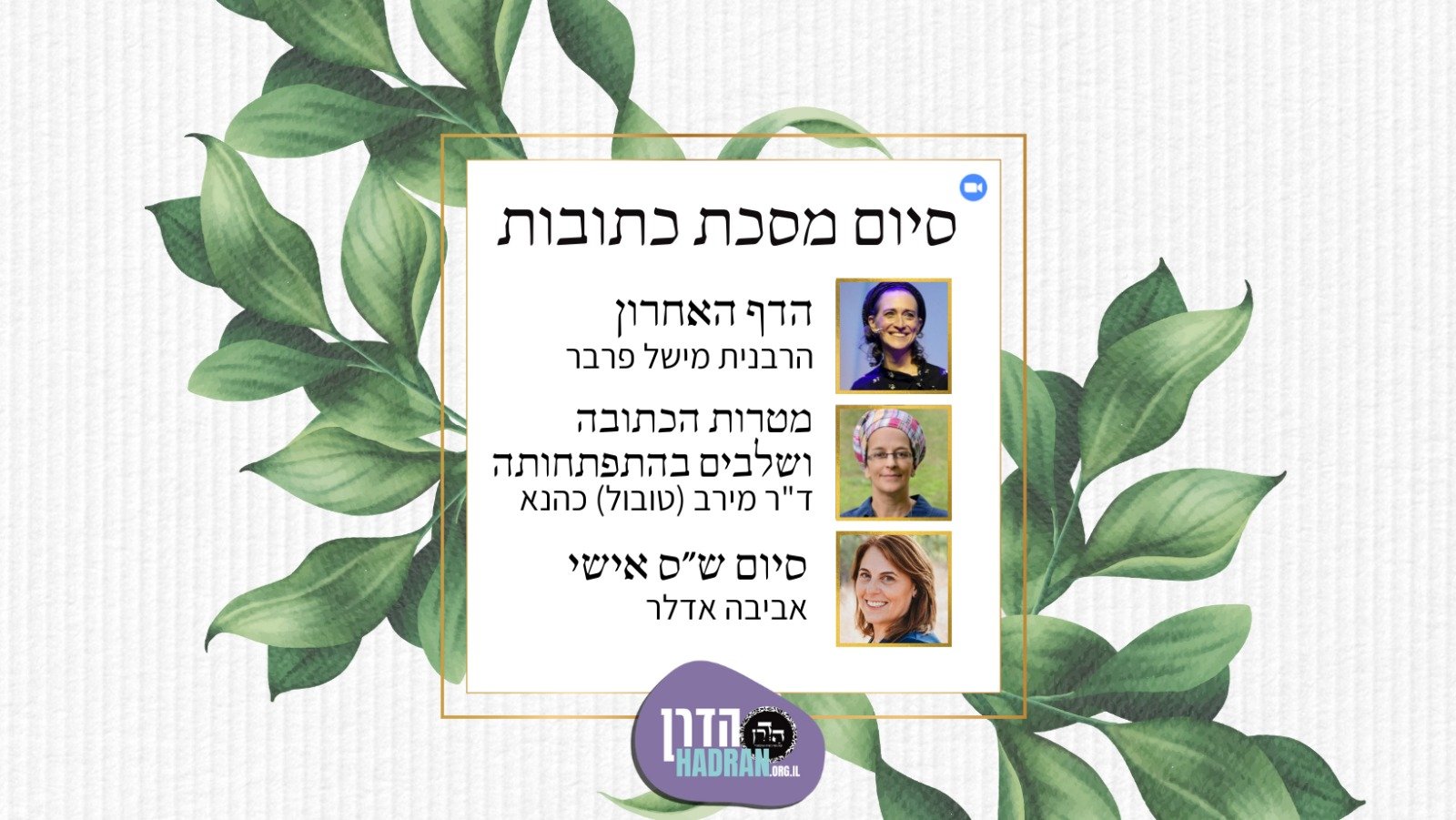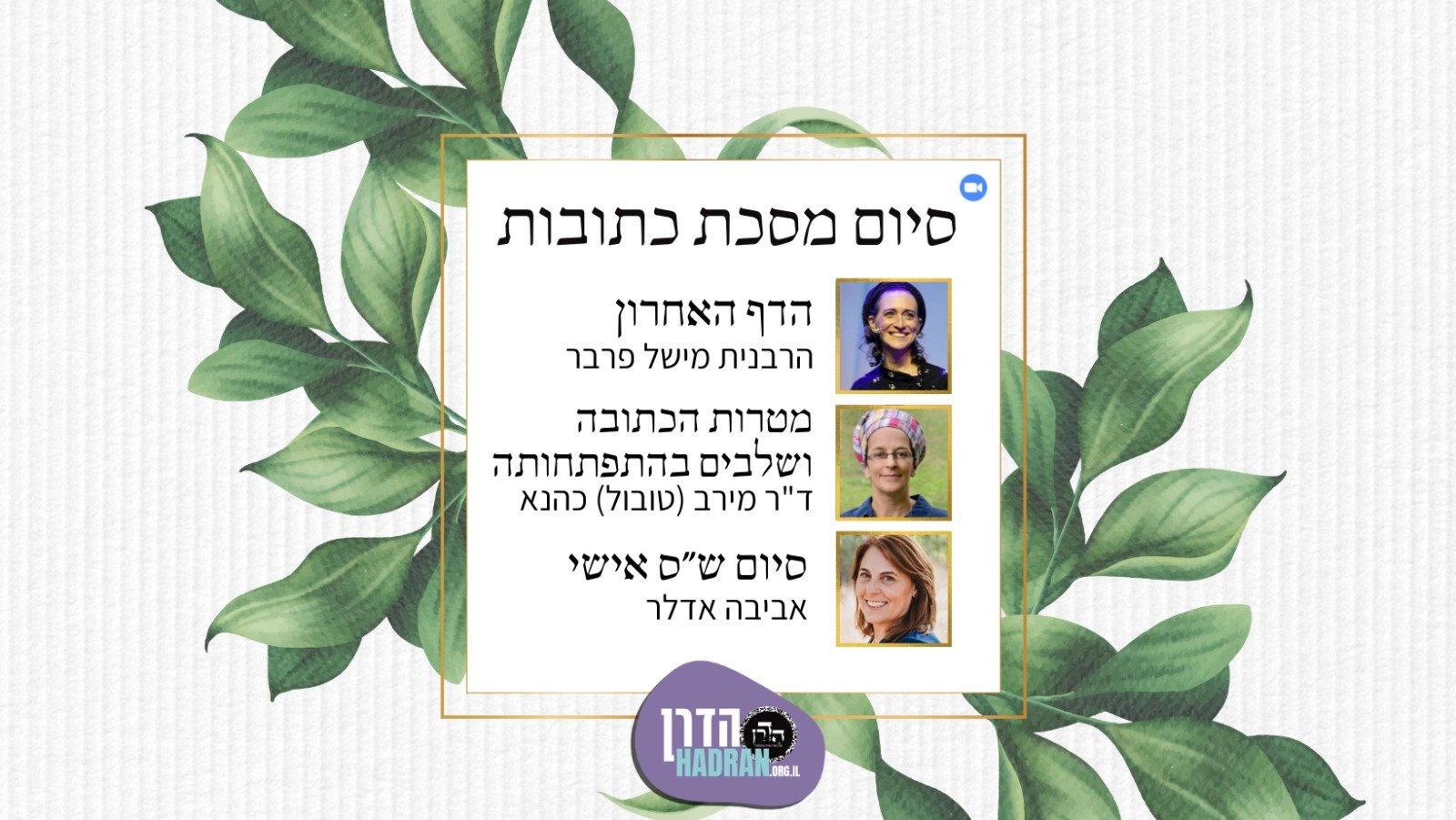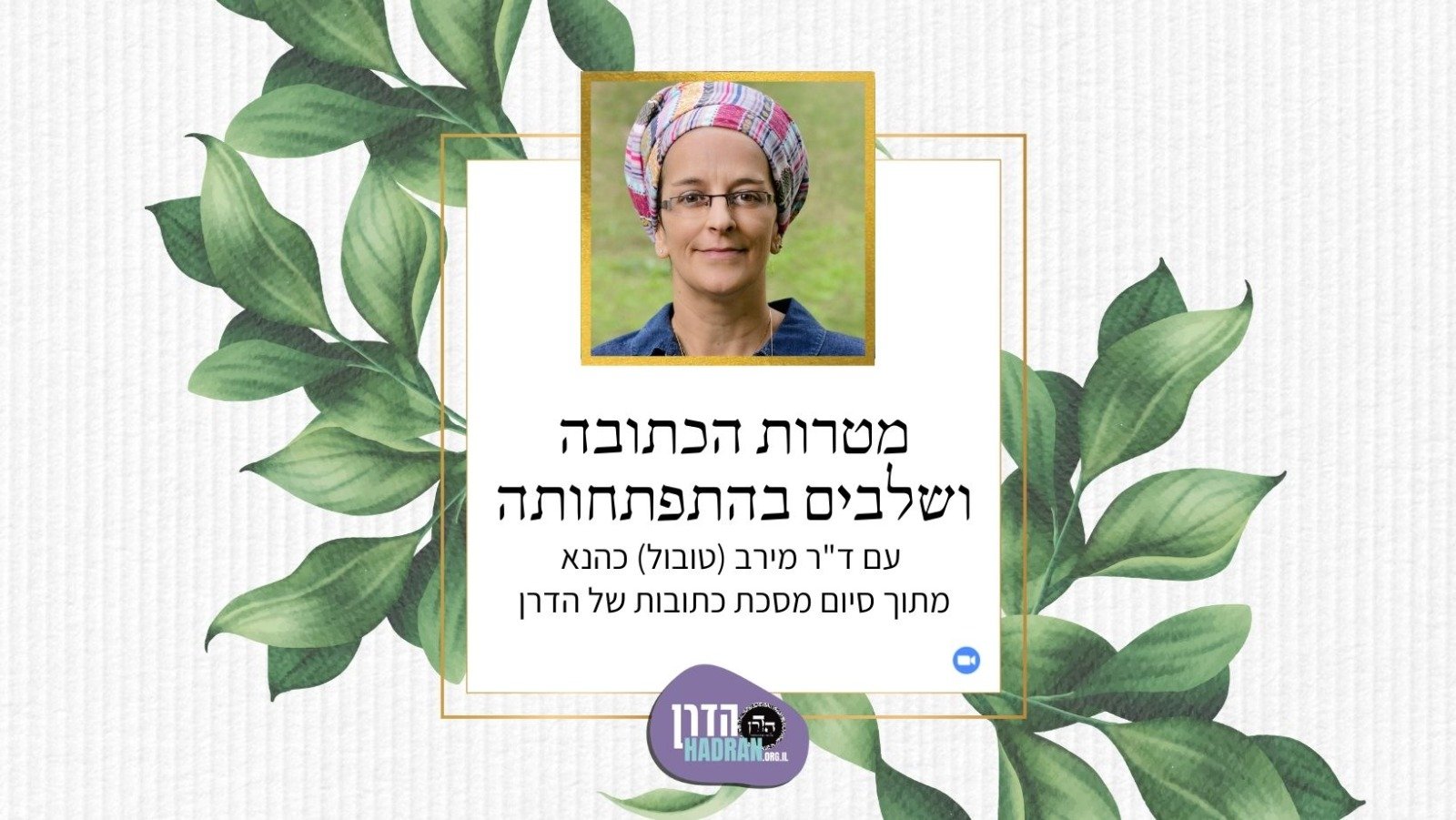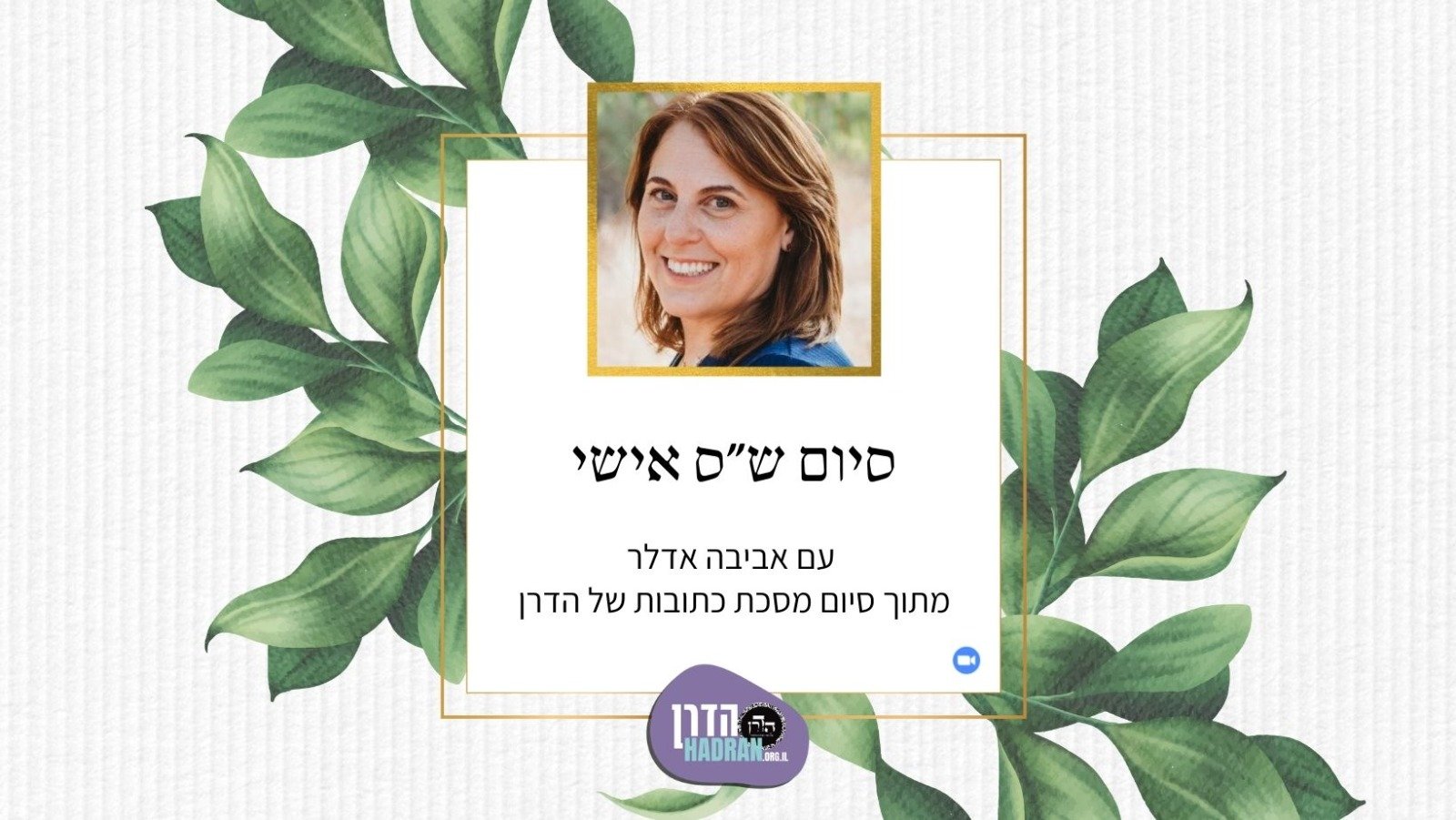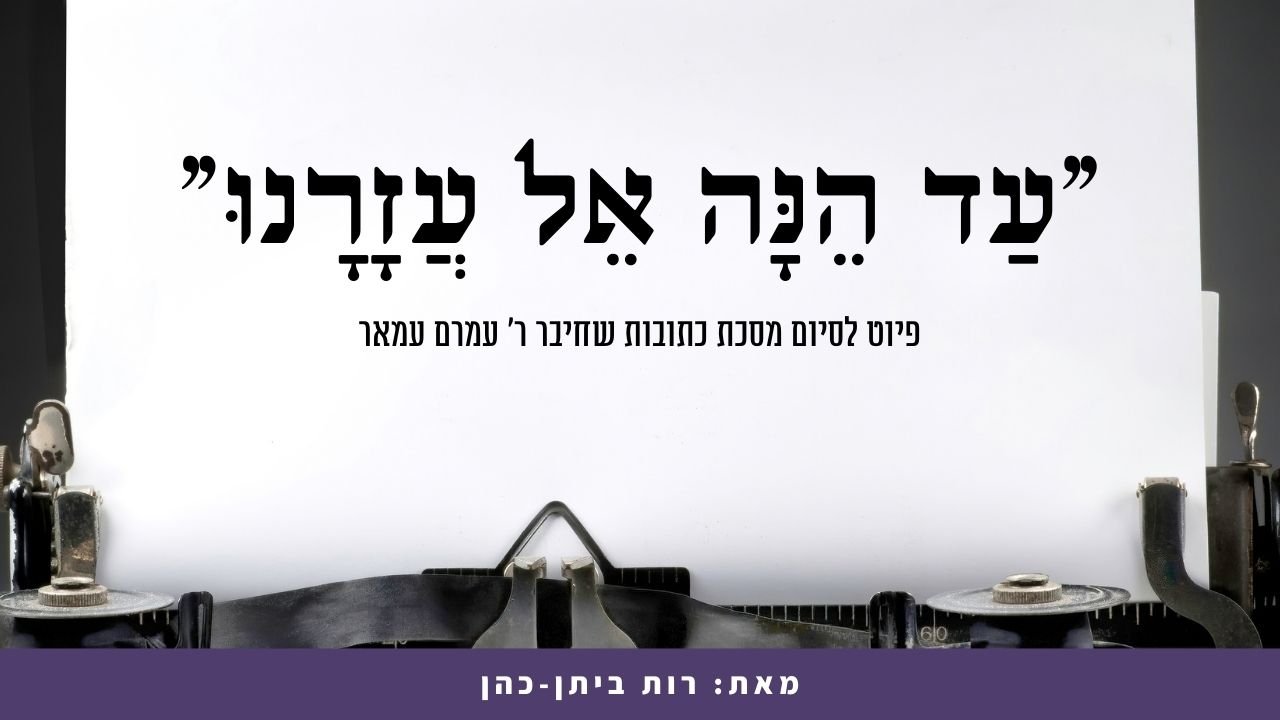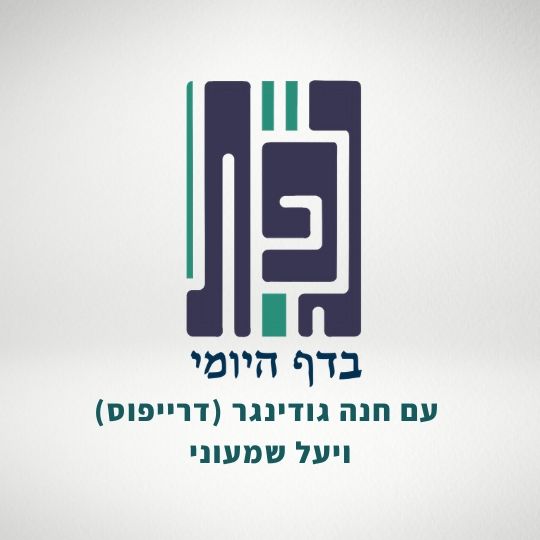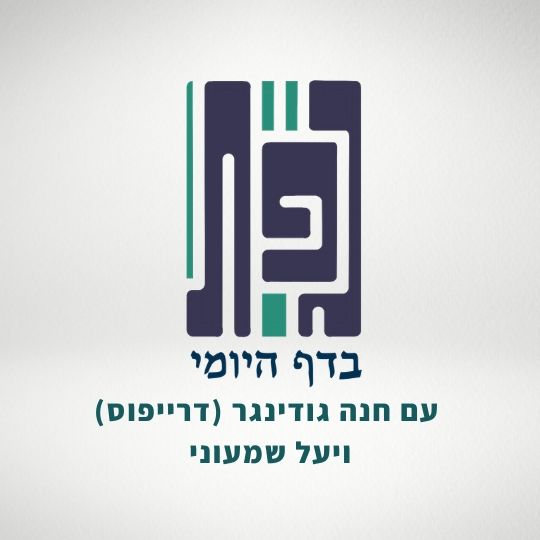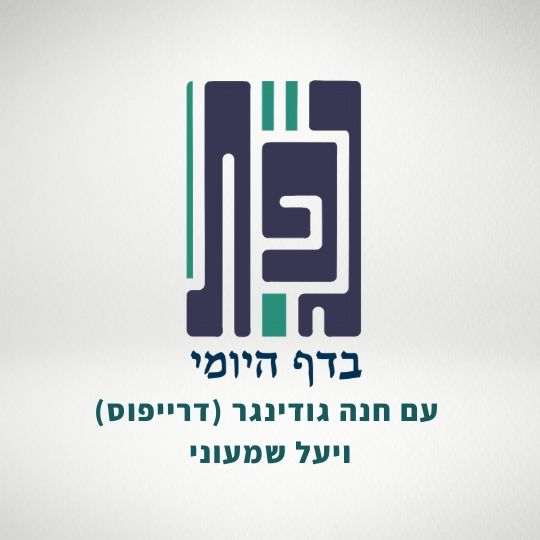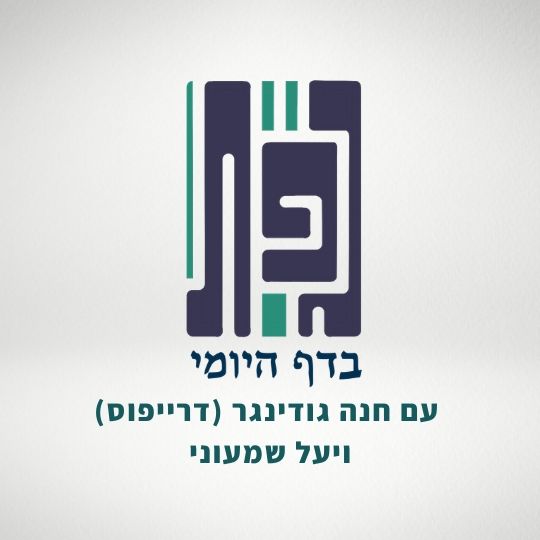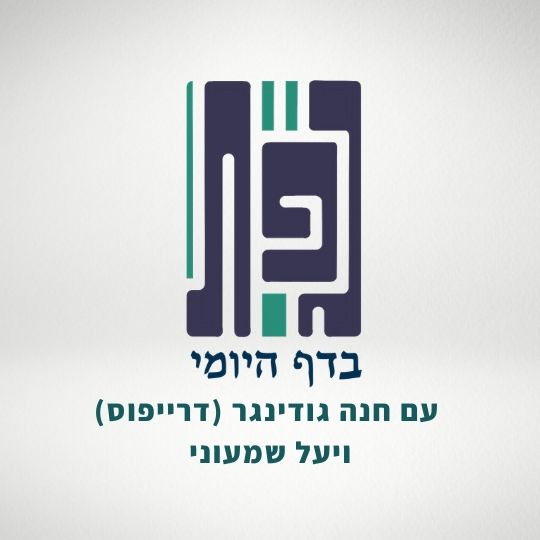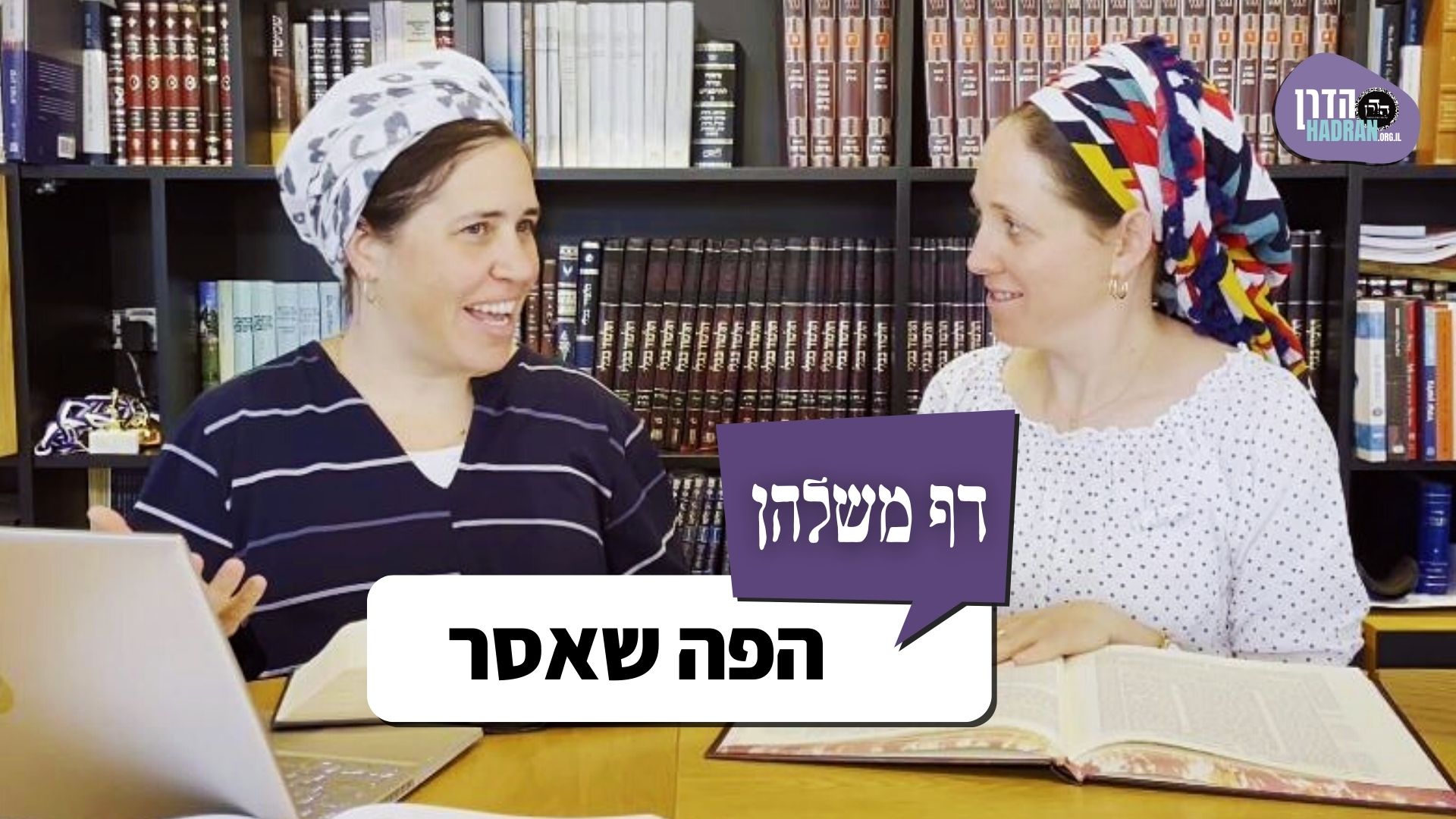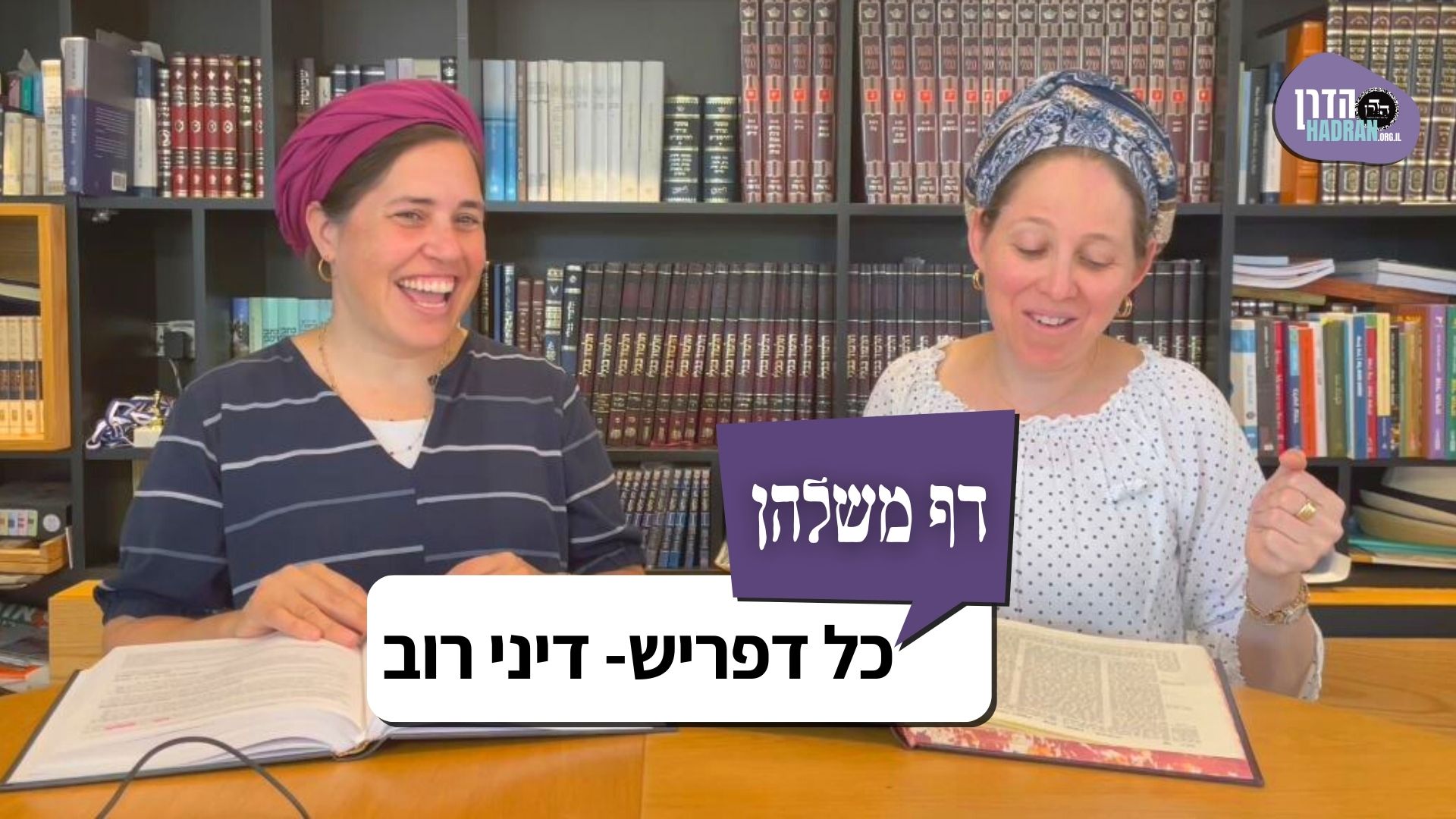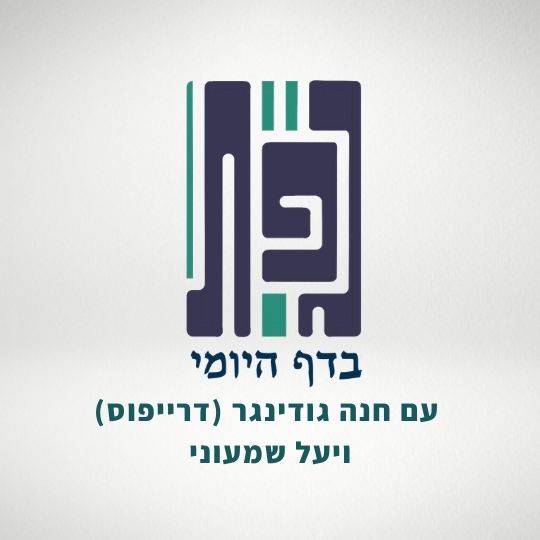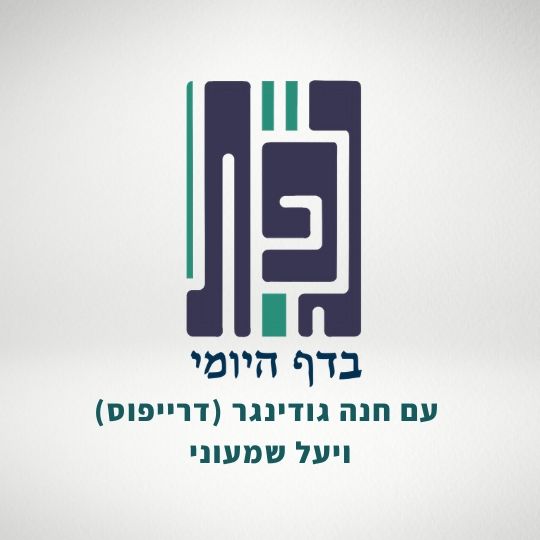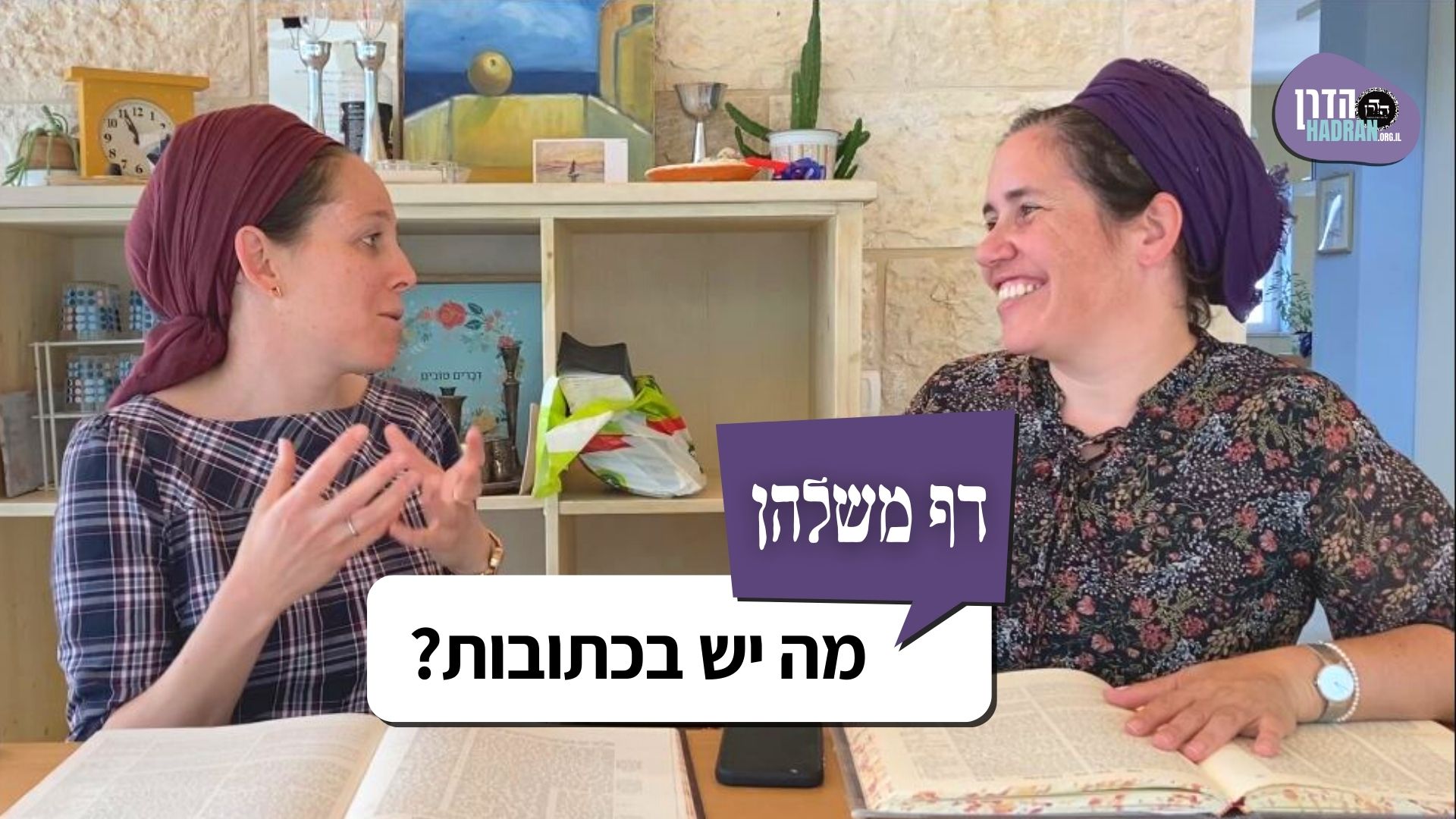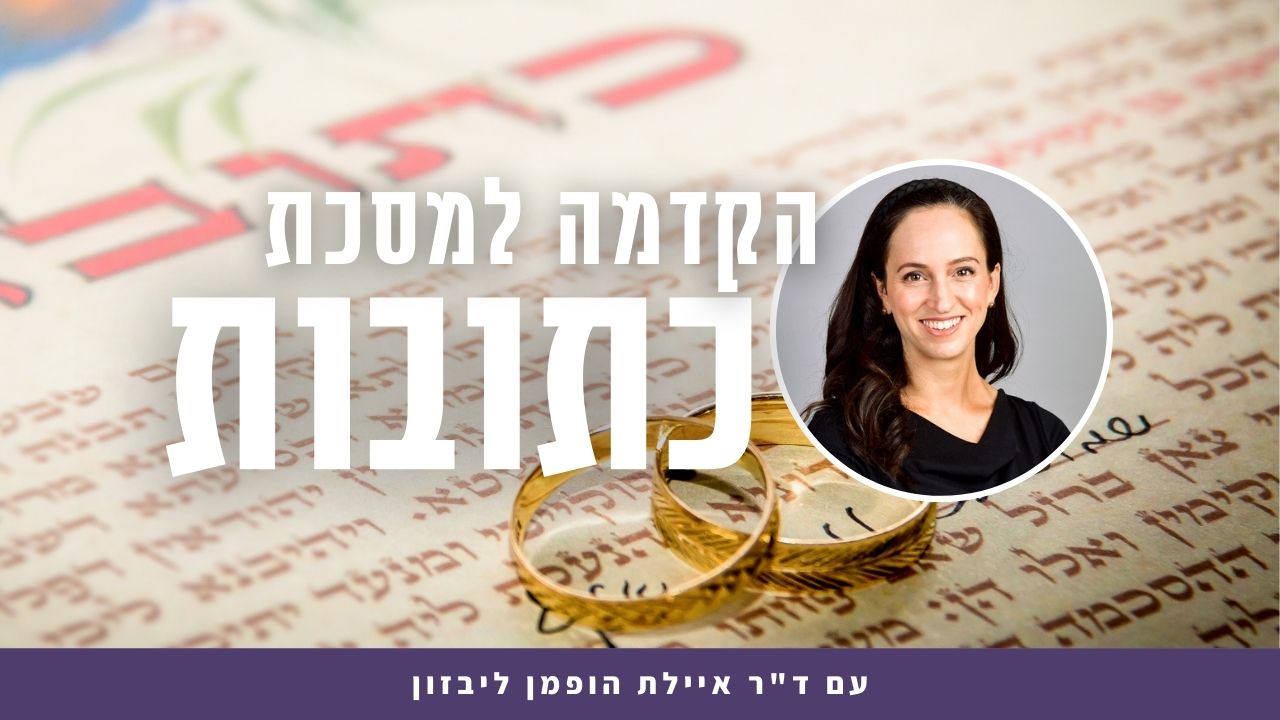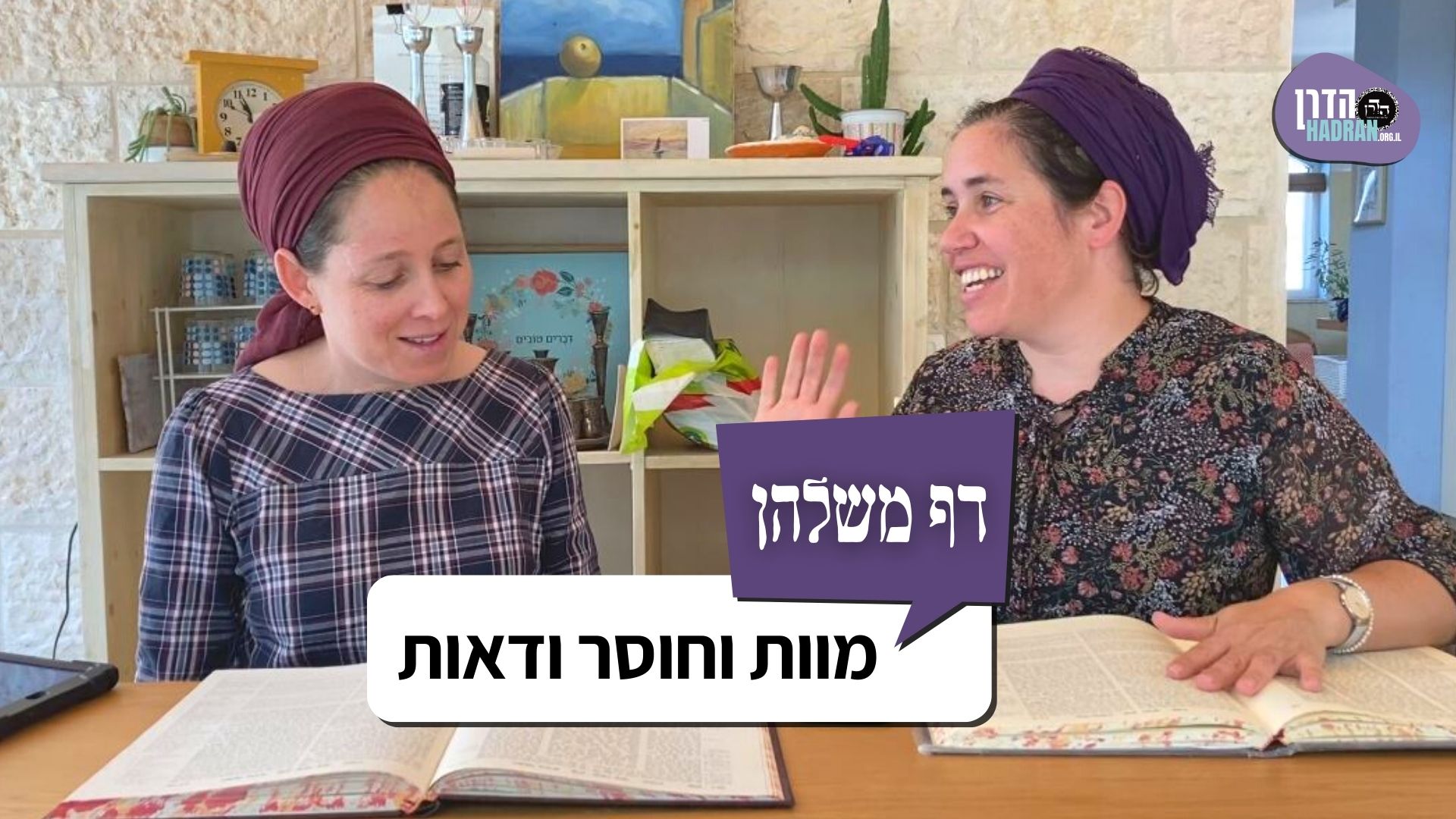כתובות ט
הָאוֹמֵר ״פֶּתַח פָּתוּחַ מָצָאתִי״ — נֶאֱמָן לְאוֹסְרָהּ עָלָיו.
A groom who says: I encountered an unobstructed orifice, claiming that when he consummated the marriage he discovered that his bride was not a virgin, is credible to render her forbidden to himself. Although it is not always possible to corroborate his claim with testimony that his wife committed adultery after betrothal, he is credible to render her forbidden to him as though she had in fact committed adultery.
וְאַמַּאי? סְפֵק סְפֵיקָא הוּא: סָפֵק תַּחְתָּיו, סָפֵק אֵין תַּחְתָּיו. וְאִם תִּמְצָא לוֹמַר תַּחְתָּיו: סָפֵק בְּאוֹנֶס, סָפֵק בְּרָצוֹן!
The Gemara asks: But why is she forbidden to him? It is a case of compound uncertainty. It is uncertain whether she engaged in intercourse while under his jurisdiction, after betrothal, in which case she would be forbidden to him, and it is uncertain whether she engaged in intercourse while not under his jurisdiction, in which case she would not be forbidden to him. And if you say that she engaged in intercourse while under his jurisdiction, it is uncertain whether she engaged in intercourse by coercion, in which case she would not be forbidden to him, and it is uncertain whether she engaged in intercourse willingly, in which case she would be forbidden to him. In cases of compound uncertainty, the ruling is lenient. Why, then, is his claim deemed credible?
לָא צְרִיכָא, בְּאֵשֶׁת כֹּהֵן. וְאִיבָּעֵית אֵימָא: בְּאֵשֶׁת יִשְׂרָאֵל, וּכְגוֹן דְּקַבֵּיל בַּהּ אֲבוּהּ קִידּוּשִׁין פְּחוּתָה מִבַּת שָׁלֹשׁ שָׁנִים וְיוֹם אֶחָד.
No, it is necessary to teach this ruling only in the case of the wife of a priest, who is rendered forbidden to her husband even if she engaged in intercourse by coercion. In that case, there is a single uncertainty. And if you wish, say instead that this ruling is relevant even to the wife of an Israelite, and it is in a case where her father accepted her betrothal when she was less than three years and one day old. Intercourse with a girl less than three years old does not permanently rupture the hymen, and therefore there is no uncertainty whether she engaged in intercourse before or after betrothal. Clearly, it took place after betrothal, and there is only one uncertainty: Did she engage in intercourse by coercion or willingly?
מַאי קָא מַשְׁמַע לַן? תְּנֵינָא: הָאוֹמֵר לְאִשָּׁה ״קִדַּשְׁתִּיךְ״, וְהִיא אוֹמֶרֶת ״לֹא קִדַּשְׁתַּנִי״ — הִיא מוּתֶּרֶת בִּקְרוֹבָיו, וְהוּא אָסוּר בִּקְרוֹבוֹתֶיהָ.
The Gemara asks: If this is a case where there is only one uncertainty, what is it teaching us? We already learned this explicitly: With regard to a man who says to a woman: I betrothed you, and she says: You did not betroth me, and there are no witnesses to corroborate either claim, she is permitted to marry any of his relatives, e.g., his brother, because based on her claim they are not related. And it is prohibited for him to marry her relatives, as based on his claim she is his betrothed. Apparently, one is capable of creating a prohibition for himself without corroborating witnesses.
מַהוּ דְּתֵימָא: הָתָם דְּוַדַּאי קִים לֵיהּ, אֲבָל הָכָא מֵיקָם הוּא דְּלָא קִים לֵיהּ, קָא מַשְׁמַע לַן.
The Gemara says that it was necessary to teach the case of the claim of virginity, lest you say: There, where certainly it is clear to him that he betrothed her, it is prohibited for him to marry her relatives. However, here, perhaps it is not clear to him that she was not a virgin, as he is not experienced in these matters and is mistaken. Therefore, Rabbi Elazar teaches us that his claim is nevertheless credible and she is forbidden to him.
וּמִי אָמַר רַבִּי אֶלְעָזָר הָכִי? וְהָאָמַר רַבִּי אֶלְעָזָר: אֵין הָאִשָּׁה נֶאֱסֶרֶת עַל בַּעְלָהּ אֶלָּא עַל עִסְקֵי קִינּוּי וּסְתִירָה, וּכְמַעֲשֶׂה שֶׁהָיָה!
And did Rabbi Elazar say that? But didn’t Rabbi Elazar say: A woman is forbidden to her husband due to adultery, only over matters of jealous warning and seclusion, and as it was in the incident that transpired involving David and Bathsheba? A wife is forbidden to her husband only in a case where he warns her not to seclude herself with a certain man and witnesses testify that she subsequently entered into seclusion with him.
וְתִסְבְּרָא מַעֲשֶׂה שֶׁהָיָה, בְּקִינּוּי וּסְתִירָה הֲוָה? וְעוֹד, מִי אַסְרוּהָ?
And how can you understand it in that manner? Was the incident that transpired with jealous warning and seclusion? Furthermore, did the Sages render Bathsheba forbidden to her husband? Had she been forbidden to her husband, she would have also been forbidden to David, based on the following principle: Just as an adulteress is forbidden to her husband, she is also forbidden to her paramour.
הָא לָא קַשְׁיָא, הָכִי קָאָמַר: אֵין הָאִשָּׁה נֶאֱסֶרֶת עַל בַּעְלָהּ אֶלָּא עַל עִסְקֵי קִינּוּי וּסְתִירָה, מִמַּעֲשֶׂה שֶׁהָיָה, דְּלָא הֲוָה קִינּוּי וּסְתִירָה וְלָא אִיתַּסְרָא. מִכׇּל מָקוֹם קַשְׁיָא: קִינּוּי וּסְתִירָה — אִין, ״פֶּתַח פָּתוּחַ״ — לָא!
That is not difficult, as this is what Rabbi Elazar is saying: The fact that a woman is forbidden to her husband due to adultery only over matters of jealous warning and seclusion is derived from the incident that transpired involving David and Bathsheba, as there was no jealous warning and seclusion, and therefore she was not forbidden to her husband. In any case, it is difficult, as the statements of Rabbi Elazar are contradictory. It may be inferred: By means of jealous warning and seclusion, yes, a man renders his wife forbidden to him; by means of the claim that he encountered an unobstructed orifice, no, he does not render her forbidden.
וּלְטַעְמָיךְ: קִינּוּי וּסְתִירָה — אִין, עֵדִים — לָא?!
The Gemara rejects that inference: And according to your reasoning, that the statement of Rabbi Elazar restricts to jealous warning and seclusion the manner in which a husband can render his wife forbidden, infer: By means of jealous warning and seclusion, yes, a man renders his wife forbidden to him; by means of the testimony of two witnesses that she engaged in adulterous relations, no, he does not render her forbidden. That cannot be so, as clearly two witnesses establish her as one who committed adultery and render her forbidden to her husband.
אֶלָּא הָכִי קָאָמַר: אֵין הָאִשָּׁה נֶאֱסֶרֶת עַל בַּעְלָהּ בְּעֵד אֶחָד, אֶלָּא בִּשְׁנֵי עֵדִים. וְקִינּוּי וּסְתִירָה — אֲפִילּוּ בְּעֵד אֶחָד נָמֵי. וּפֶתַח פָּתוּחַ — כִּשְׁנֵי עֵדִים דָּמֵי.
The Gemara explains: Rather, this is what Rabbi Elazar is saying: A woman is not rendered forbidden to her husband through the testimony of one witness. Rather, she is rendered forbidden only by means of the testimony of two witnesses who testify that she engaged in adulterous relations. And if there was jealous warning and seclusion, she is rendered forbidden even by means of the testimony of one witness as well, if he comes after the husband warned his wife and testifies that she engaged in adulterous relations. And the legal status of the claim: I encountered an unobstructed orifice, is like that of two witnesses, and it renders her forbidden even without jealous warning and seclusion.
וְכִי תֵּימָא מַעֲשֶׂה שֶׁהָיָה, מִפְּנֵי מָה לֹא אֲסָרוּהָ? הָתָם אוֹנֶס הֲוָה. וְאִיבָּעֵית אֵימָא: כִּי הָא דְּאָמַר רַבִּי שְׁמוּאֵל בַּר נַחְמָנִי אָמַר רַבִּי יוֹנָתָן:
And if you would say with regard to the incident that transpired involving David and Bathsheba: For what reason did the Sages not deem her forbidden, when clearly David committed adultery with a married woman? The Gemara answers: There it was rape, and she did not engage in intercourse willingly. And if you wish, say instead that the Sages did not deem her forbidden, as that which Rabbi Shmuel bar Naḥmani said that Rabbi Yonatan said:
כׇּל הַיּוֹצֵא לְמִלְחֶמֶת בֵּית דָּוִד, גֵּט כְּרִיתוּת כּוֹתֵב לְאִשְׁתּוֹ. דִּכְתִיב: ״וְאֶת אַחֶיךָ תִּפְקֹד לְשָׁלוֹם וְאֶת עֲרֻבָּתָם תִּקָּח״, מַאי ״וְאֶת עֲרֻבָּתָם תִּקָּח״? תָּנֵי רַב יוֹסֵף: דְּבָרִים הַמְעוֹרָבִין בֵּינוֹ לְבֵינָהּ.
Anyone who goes to a war waged by the royal house of David writes a conditional bill of divorce to his wife. This was done to prevent a situation in which the wife of the soldier would be unable to remarry because her husband did not return from battle and there were no witnesses with regard to his fate. The conditional bill of divorce accorded the wife the status of a divorcée and freed her to remarry, as it is written: “And to your brothers bring greetings and take their pledge [arubatam]” (I Samuel 17:18). What is the meaning of: And take arubatam? Rav Yosef taught: It is referring to matters that are shared [hame’oravin] between the husband and his wife, i.e., marriage. Since apparently it was customary for men at war to send their wives a conditional divorce, and since Uriah later died, Bathsheba assumed divorced status retroactively from the time that he set out to war. Therefore, she was not forbidden to David.
אָמַר אַבָּיֵי, אַף אֲנַן נָמֵי תְּנֵינָא: בְּתוּלָה נִשֵּׂאת לַיּוֹם הָרְבִיעִי. לְיוֹם רְבִיעִי — אִין, לְיוֹם חֲמִישִׁי — לָא. מַאי טַעְמָא — מִשּׁוּם אִיקָּרוֹרֵי דַעְתָּא.
§ Apropos the credibility of the claim: I encountered an unobstructed orifice, Abaye said: We, too, learn in the mishna proof for the opinion of Rabbi Elazar: A virgin is married on Wednesday. Abaye infers: On Wednesday, yes, a virgin is married; on Thursday, no, she is not married. What is the reason for this ruling? It is due to the fact that if the marriage were to be held on Thursday, several days would elapse before the court would next convene, and in the interim his resolve will cool and his anger subside. The concern is that consequently he will fail to claim before the court that his bride was not a virgin.
וּלְמַאי? אִי לְמִיתַּב לָהּ כְּתוּבָּה, נִיתֵּיב לַהּ! אֶלָּא לְאוֹסְרָהּ עָלָיו, וּדְקָא טָעֵין טַעֲנָה.
The Gemara asks: And for what matter is that a source of concern? If the concern is with regard to giving her payment for her marriage contract, i.e., if he fails to go to court, her legal status at the time of marriage will remain that of a virgin, and when the time comes she will receive payment for her marriage contract to which she is not entitled; then let him give it to her if he wishes. Why is that a concern? Rather, it is with regard to rendering her forbidden to him, and that would result in a case where he makes a claim.
מַאי לָאו, דְּקָטָעֵין טַעֲנַת ״פֶּתַח פָּתוּחַ״! לָא, דְּקָטָעֵין טַעֲנַת דָּמִים.
What, is it not referring to a case where he makes the claim: I encountered an unobstructed orifice, after engaging in intercourse with his bride, and his claim is accorded credibility to render her forbidden to him in accordance with the opinion of Rabbi Elazar? The Gemara rejects that proof: No, it can be explained that it is a case where he makes the claim that there was no blood, which would have resulted from rupture of the hymen had she been a virgin. That is a claim based on objective, verifiable evidence and not merely dependent on his subjective sensation.
אָמַר רַב יְהוּדָה אָמַר שְׁמוּאֵל: הָאוֹמֵר ״פֶּתַח פָּתוּחַ מָצָאתִי״, נֶאֱמָן לְהַפְסִידָהּ כְּתוּבָּתָהּ. אָמַר רַב יוֹסֵף: מַאי קָא מַשְׁמַע לַן? תְּנֵינָא: הָאוֹכֵל אֵצֶל חָמִיו בִּיהוּדָה שֶׁלֹּא בְּעֵדִים — אֵינוֹ יָכוֹל לִטְעוֹן טַעֲנַת בְּתוּלִים, מִפְּנֵי שֶׁמִּתְיַיחֵד עִמָּהּ. בִּיהוּדָה הוּא דְּלָא מָצֵי טָעֵין, הָא בַּגָּלִיל מָצֵי טָעֵין.
§ Rav Yehuda said that Shmuel said that a groom who says: I encountered an unobstructed orifice, is deemed credible with regard to causing her to lose her marriage contract. Rav Yosef said: What is he teaching us? We already learned explicitly in a mishna (12a): A man who eats at the house of his father-in-law in Judea after betrothal, without witnesses to attest to the fact that he was not alone with her, cannot make a claim about his bride’s virginity after marriage, because in accordance with the custom in Judea, the assumption is that he secluded himself with her and it was he who engaged in intercourse with her. The Gemara infers: It is in Judea that he cannot claim that she is not a virgin, but in the Galilee, he can claim that this is the case.
וּלְמַאי, אִי לְאוֹסְרָהּ עָלָיו, בִּיהוּדָה אַמַּאי לָא? אֶלָּא לָאו, לְהַפְסִידָהּ כְּתוּבָּתָהּ, וּדְקָא טָעֵין טַעֲנָה. מַאי לָאו, דְּקָא טָעֵין טַעֲנַת ״פֶּתַח פָּתוּחַ״! לָא, דְּקָא טָעֵין טַעֲנַת דָּמִים.
The Gemara asks: And for what matter is this claim directed? If it is to render her forbidden to him, then in Judea why is the claim not credible? If he is certain that he did not engage in intercourse with her, and finds that she is not a virgin, apparently she committed adultery and that claim should render her forbidden. Rather, is it not that he is seeking to cause her to lose her marriage contract in a case where he makes a claim? And what, is it not referring to a case where he makes the claim: I encountered an unobstructed orifice, and apparently he is accorded credibility? The Gemara rejects that proof: No, it can be explained that it is a case where he makes the claim that there was no blood.

